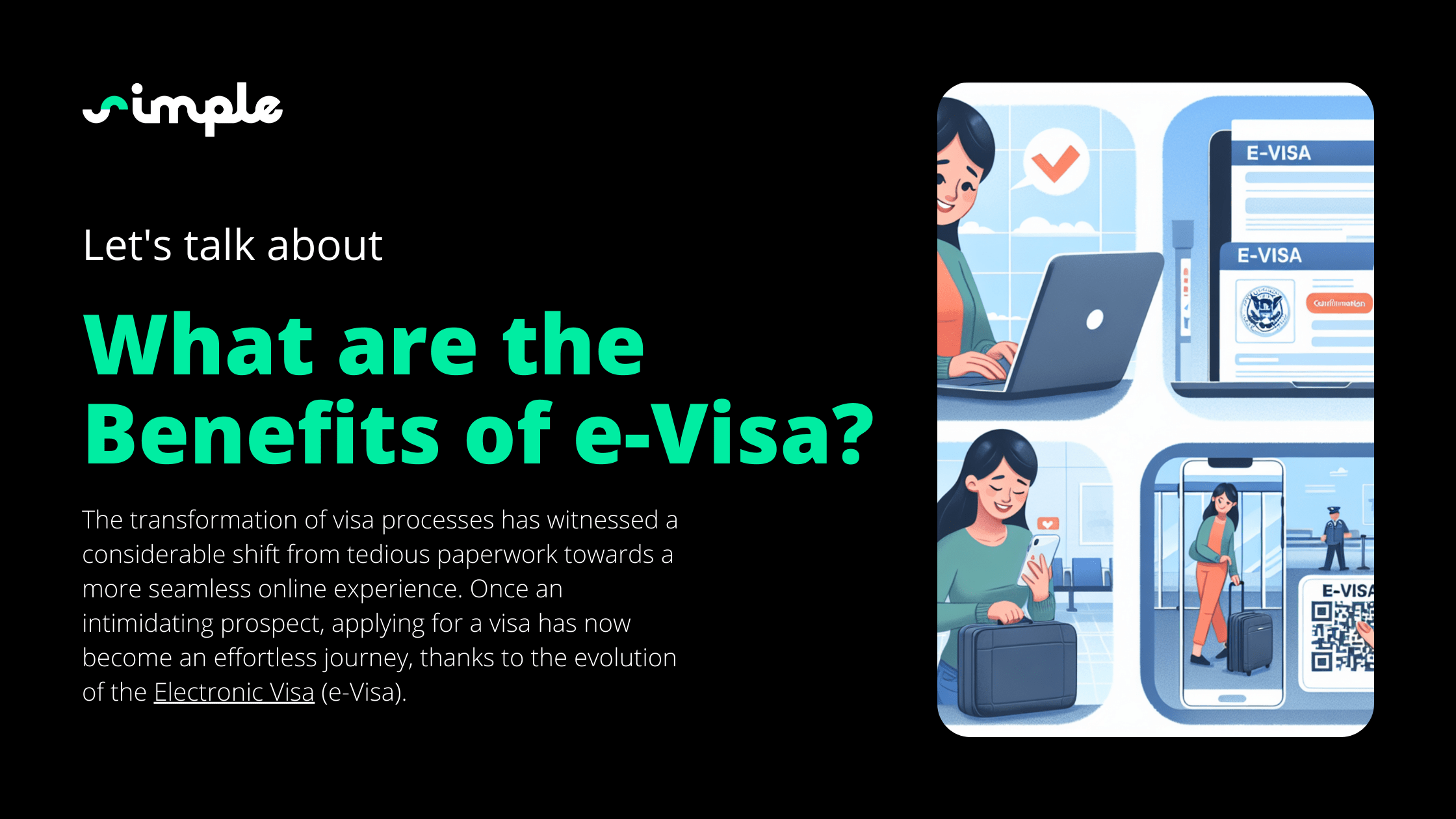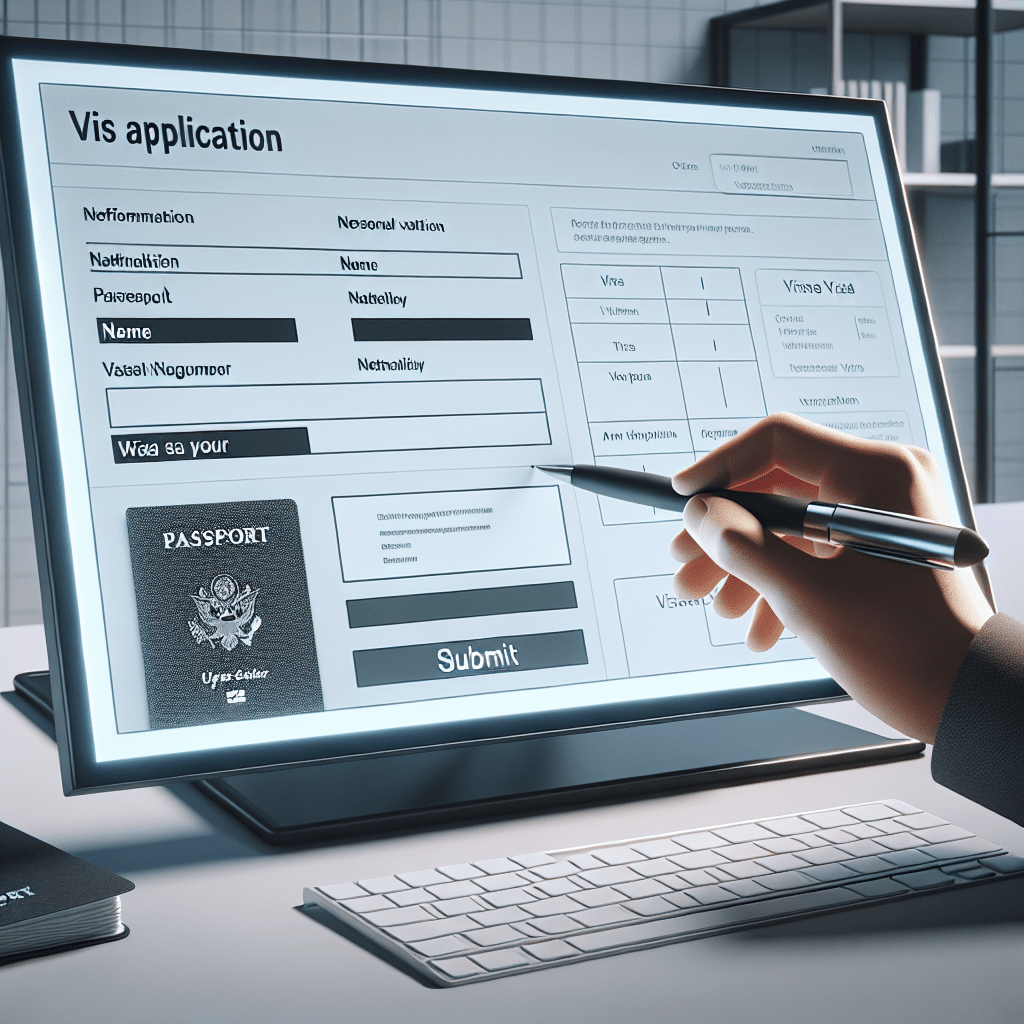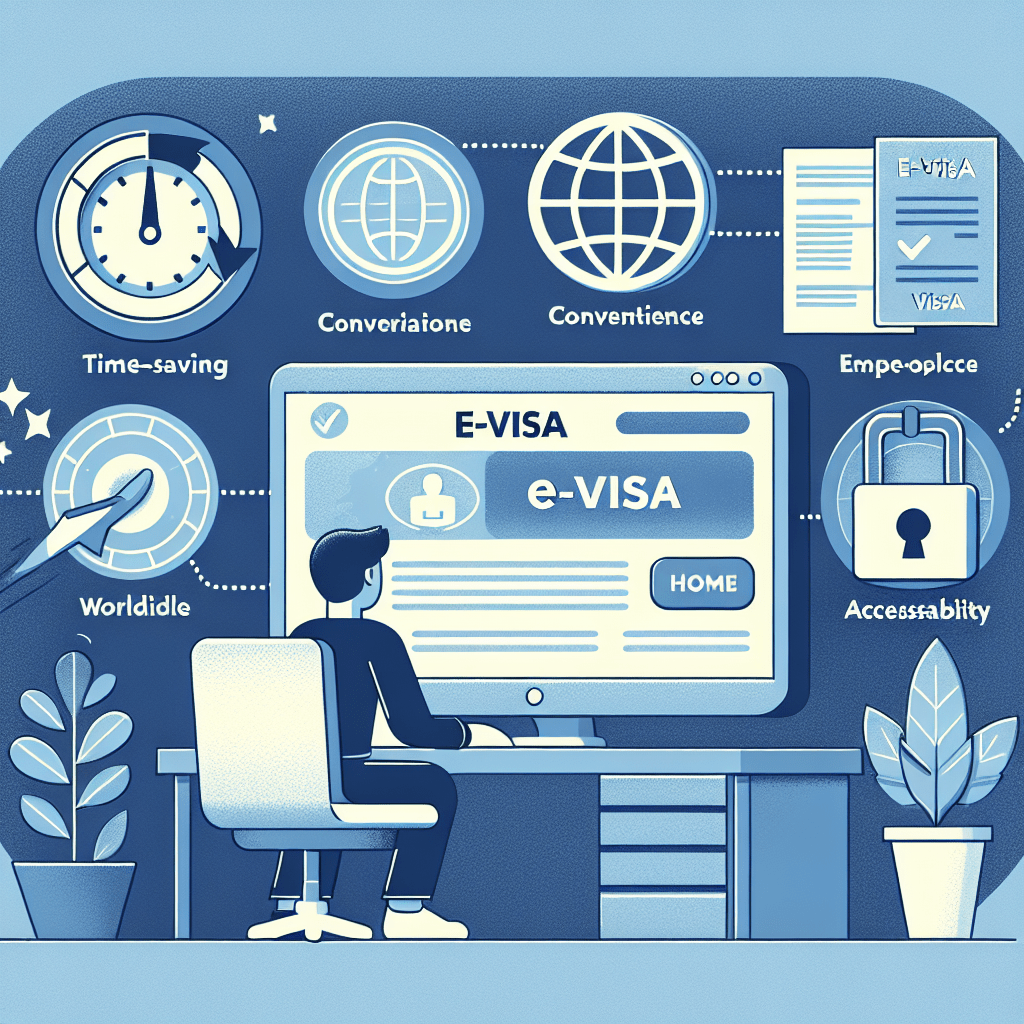Electronic Visa : What are the benefits ?

This remarkable advancement in immigration procedures was born out of the need for a faster, more efficient process. The electronic visa is a digital form of the traditional visa, therefore eliminating the necessity for physical applications, tedious waiting times, and inconvenient visits to the embassy. It has revolutionized the way travelers go about their preliminary trip preparations, allowing them the freedom to apply for travel authorization from anywhere in the world.
While we observe an obvious upward trend in electronic visa usage, many still question its benefits and how it stands against the traditional visa application process. This essay aims to relieve such worries by diving in-depth into the benefits of an electronic visa. It further provides substantial information on how this new-age resolution to traditional travel obstacles is creating greater accessibility and convenience for global travelers.

Understanding e-Visa
Explanation of e-Visa
The e-Visa or Electronic Visa is a form of digital travel permit, often obtained through a straightforward internet visa application. It creates a smoother online visa process, doing away with the conventional voluminous paperwork associated with visas. Countries worldwide now embrace these remote visa application services, making travel authorization a stress-free procedure.
The e-Visa is typically linked electronically to one’s passport. Upon approval, candidates receive their e-Visa via email, which they can print out and present during their travel. The Electronic Visa Submission generally requires basic personal information, travel details, and a valid passport.
Countries providing e-Visa services
Multiple countries globally have implement electronic visa systems, recognising their importance in ensuring efficient visa processing. Notable examples include Australia, India, Turkey, and the United States.
These countries offer an array of features through their e-Visa services. For instance, the USA’s Electronic System for Travel Authorization (ESTA) allows eligible travelers from certain countries to visit for up to 90 days without a visa. On the other hand, the Indian E-Tourist Visa provides single to multiple entries based on the type of e-Visa applied for, illustrating the range of features these online visa services provide.
Comparing e-Visa with traditional visa application
Differentiating between the traditional visa process and the online visa approval system, we notice stark contrasts. The traditional approach often requires an individual to visit the consulate or embassy, fill out extensive paperwork, and endure long wait times. In contrast, Digital Visa Applications are quicker, more straightforward, and can be completed from comfort of one’s home.
The rising popularity of e-Visas can be attributed to these advantages. In today’s fast-paced world where time is a valued commodity, many are drawn to the convenience of Instant Visa Services. Furthermore, the transparency in the e-Visa approval process provides applicants with constant status updates adding comfort and surety to their pre-travel preparations.

Benefits of e-Visa
Time-saving nature
Arguably, the most popular benefit of an e-Visa is its time-saving nature. Online Visa Approval system cuts out the need to travel to and queue at embassies or consulates, resulting in a remarkably expedited process. The digital visa application can be filled out online and typically processed within a few days, a stark contrast from the weeks it might take through the traditional route.
Online immigration services have this unique advantage of not limiting applicants to office hours. Clients have the benefit of submitting applications anytime. By doing away with physical queuing, the e-Visa system drastically reduces the time spent on obtaining a visa, thus leading to a better utilization of time by the travelers.
Convenience and Flexibility
e-Visa services are predominantly characterized by their convenience. Internet visa applications are easily accessible to everyone with internet access, making it possible to apply for a visa from any location worldwide. This remarkable flexibility has made the process more user-friendly, allowing travelers to manage their visa application from the comfort of their homes.
Moreover, travelers have the choice and liberty of submitting their applications at any moment. The freedom to initiate, pause, and resume the application process lends an unparalleled convenience to the applicants. This level of ease and flexibility has further fueled the growing popularity of this web-based visa system.
Safety and Transparency
In terms of safety, the e-Visa system outperforms the traditional procedures. The remote visa application process includes robust online security measures that safeguard an applicant’s information, while the process of physically handling documents is eliminated. These added security layers significantly lower the risk of sensitive information loss or theft.
Transparency is another highlight of electronic visa applications. Once the application is submitted, the applicant can track their electronic visa inquiry, keeping them informed about their visa processing status. This unprecedented transparency has enhanced trust and confidence among travelers using the service.
The Effectiveness of electronic visa in Context
Case study: Impact of electronic visa on the Tourism Industry
The impact of e-Visa on the tourism industry is clearly illustrated when evaluating its contribution to an upswing in global tourism. With the introduction of e-Tourist Visa, potential tourists can now avoid lengthy traditional visa processes, and instead opt for the faster, easier web-based visa system, thus increasing the appeal of international travel.
For instance, when India introduced its E-Tourist Visa program

in 2014, foreign tourist arrivals saw a significant increase, registering a spike by 216.6% in 2016 alone. This further propelled an unprecedented increase in tourism revenue. The case of India clearly signifies how e-Visa can reform the situation for a country’s tourism economy.
Role of e-Visa in Global Mobility
One cannot undermine the role e-Visa plays in enhancing global mobility. As we advance in a digitized era, the idea of efficient global networking has become increasingly vital. E-Visa services have revolutionized personal and business travel by making it easier than ever to secure travel authorizations, a decisive factor encouraging global travel.
The digital visa application system’s convenience and speed allow individuals and businesses to plan and execute international travels in a shorter timeframe. This arrestingly simplified process can foster effortless networking across the geographical boundaries, thus propelling globalization on to its next stage.
Future Prospects of electric visa
The future picture of e-Visa holds an optimistic view. As technology advances and countries acknowledge the comprehensive benefits of online visa approval, it’s anticipated that more countries will adopt this digital format. This, in turn, will continue fostering better global travel experiences and relations.
Advancements in the digital sphere may further simplify the e-Visa approval process, such as the integration of Artificial Intelligence and Machine Learning for automated application reviews. As for travelers, the future prospect of an even more user-friendly, quicker, and reliable e-Visa system adds more excitement and assurance to their international travel endeavors.

Embracing Digital Transformation in Modern Travel
In concluding the benefits and effectiveness of e-Visa, it’s clear that this revolutionary digital approach towards obtaining travel authorization has brought about a significant shift in the visa application process worldwide. The procedure, once charged with physical paperwork and strenuous waiting times, has now been transformed into a convenient, transparent and secure online process. Open round the clock, one can note the ease with e-Visa application from any part of the globe. It adds flexibility in the planning stage of a journey, marking a significant improvement compared to traditional visa systems.
Further, as shown in the case study, the introduction of the e-Visa system has boosted tourism, contributing to global economic gains. It facilitates ease of global mobility for travellers and businesspersons alike, providing a much-needed boost to international relations and global networking. Looking forward, with technology driving continuous improvements, e-Visa systems are set to keep evolving, offering seamless services for all, and we can only expect an increase in global acceptance by many more countries.
There’s no denying that the advent of e-Visa is one of the most significant advancements in the realm of global travel. Their rapid popularity and adoption testify to their effectiveness, setting a solid groundwork for their foreseeable growth in importance. It’s evident that as the world becomes increasingly digital, embracing such digital transformations such as e-Visa will be crucial in fostering a more integrated, mobile, and globally connected world.